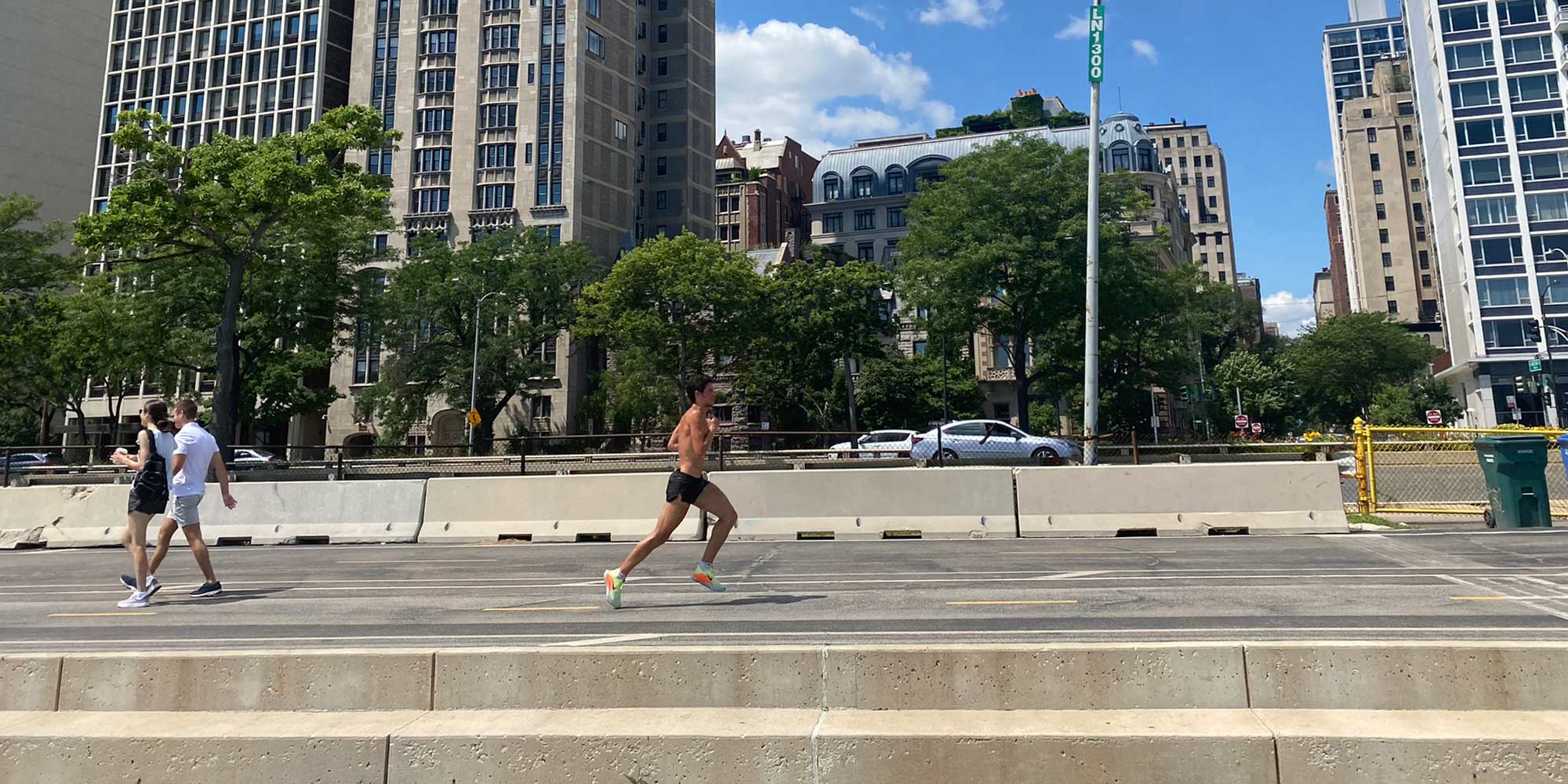14 Tips that can help you perform your best and keep you safe this summer.
1 Wear the right clothes.
Wear a hat, sunglasses and light colored clothes. Clothes should be a lighter material that is moisture wicking.
2 Hydrate before, during, and after.
Put some effort into hydrating, it’s important for safety and performance. It’s good to run on a route that has water fountains. If that’s not possible, stop by a store.
3 Avoid alcohol.
Avoid alcohol the day before the run or after the run. Running in the heat is hard enough as it is, the last thing anyone needs is alcohol.
4 Don’t only check the temperature.
Also check the wind, humidity, and UV index. Step outside and see how it feels. After that you can decide on the details of the run or maybe reschedule it.
5 Pick the right time and route.
Try to find a trail with shade. If it’s possible, run in the morning or later in the day when the UV index and temperatures are lower.
6 Apply sunscreen.
Use a water resistant sports sunscreen that is SPF 30 or higher. Sunburn can cause fever, nausea, and fatigue.
7 Eat light and healthy beforehand.
It should be something plain, like two bananas and a bagel. Avoid anything oily and fatty.
8 Replace electrolytes.
You’re obviously going to be sweating a lot, so you need to replace the water and salt that you’re losing. A sports drink or energy gels during the run are crucial.
9 Take it easy.
The heat isn’t good for speedwork or 20 mile runs. Adjust your training schedule if you have to.
10 Take safety measures.
Bring your phone so you can call someone if you experience heat sickness. Don’t go too far away from your house and avoid isolated areas.
11 Go swimming afterwards.
Swimming is great cross-training that can aid in muscle recovery and improve flexibility. It’ll also feel great after a run on a hot day, it’s a nice reward.
12 Recover when you return.
Take a cold shower and turn up the AC. Continue hydrating and eat something healthy.
13 Embrace the heat.
Don’t dread the run. It’s fun to go outside and enjoy a hot summer day. It’s also good training to run in difficult conditions.
14 Know when not to run outside.
Everyone is different, so it’s important that you know your limitations. People that are over the age of 65 or overweight are more at risk for heat related illness. Other factors like medication or pre-existing conditions should also be considered. There are always other options, like running indoors on a treadmill or rescheduling the run.


